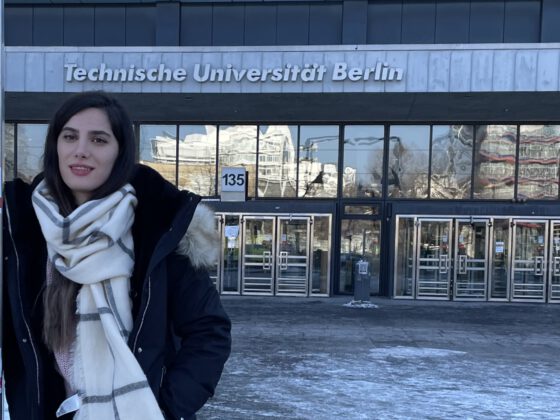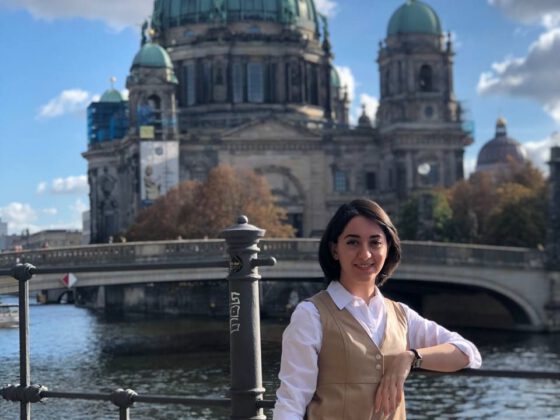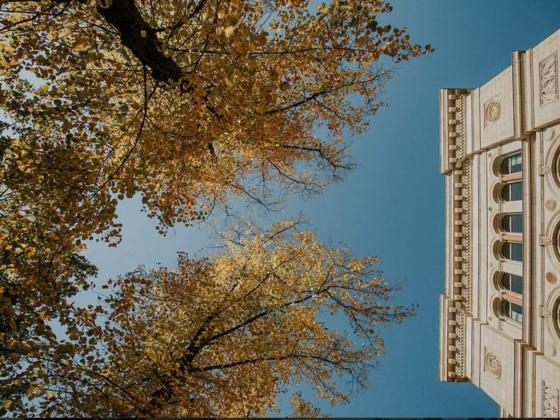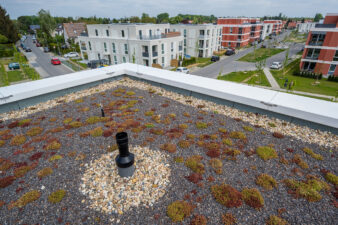 What was your research topic and how well did you succeed in implementing your research project during your stay?
What was your research topic and how well did you succeed in implementing your research project during your stay?
I was focusing on accessing blue-green infrastructure sensitivities to temperature under climate change. I was not very satisfied with myself during the stay because I was not yet very familiar with my research direction so I needed a lot of time to reaccumulate more professional knowledge.
How was the supervision?
The supervision by my professors was professional and very interesting. The professor at my home university gave me some specific advice for my research direction to avoid redundant analysis. And prof. Cominola is a patient and practical professor who gave me plenty of useful guidance and information about digital skills, such as the selection of data websites and simulation software. Through his advice, I realized which difficulties I was facing and the mistakes I made in my research. Prof. Cominola introduced me to a Chinese PhD student who was doing the same research direction as me, which was a valuable opportunity for me.
What were the obstacles?
At first, it was difficult to obtain a precise database for my research. It is common that some of the data sets only support targeted users and I had to spend a lot of time to get proper information.
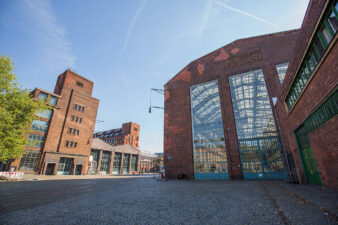 How was your experience with the ide3a team and the organisation of your stay?
How was your experience with the ide3a team and the organisation of your stay?
Before I went to Berlin, the ide3a team had already given me some useful tips, like how to apply for the accommodation and how to buy transport tickets for an exchange student. When I came to Berlin, they offered me a complete and interesting tour around the campus (TU Berlin) such as libraries and laboratories. Also, it was a very unforgettable and enjoyable to meet up with the other ide3a scholarship holders in a pub where I tried the first glass of German beer in my life. Amazing!
How sufficient was the scholarship to enable you to do what you were planning to do?
It was absolutely sufficient to finance my life in Berlin. Thanks to the scholarship, I could do a lot of field research about the blue-green infrastructures in Berlin and the other surrounding cities.

What helped you to find accommodation in the city you were in?
I am a Chinese student and I found accommodation from elder Chinese students in Berlin. And also, the ide3a team gave me a website and useful tips how to apply for student dormitories in Berlin. The monthly accommodation fee is about 500 Euros.
What did you learn apart from academia?
I was really impressed by some things during my stay: On the city level, the infrastructure planning in Berlin could be regarded as “paradise”. A good example is there are different types of public transportation in urban areas and between different cities, like the S/U Bahn, RE railway and so on. It does not only offer a convenient life for people by having an efficient transport system network, but also brings more opportunities for the development of humankind and the city itself. Furthermore, the streets of Berlin are more pedestrian and bike friendly. Different from cites in China that are often designed for cars, all streets contain separated bike lanes, which I think is a good way to achieve low-carbon and environmentally friendly transportation.
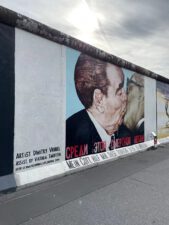
About the culture, Berlin is different from Milano (the city of my host university). It is larger and more restrained and you can find many galleries, museums, or shops that you rarely ever see somewhere else. You need to explore it by yourself and you will be amazed by this colourful city. Berlin is scarred, you can see old and new buildings constantly and you will find Bauhaus architectural style and classical buildings standing in front of you at the same time. The city is tolerant and diverse. And to be honest, Germans are more reserved than Italians, they are more likely to keep social distance.
What would you have liked to know beforehand?
From my perspective, it would have been useful to get in touch with some buddies who were also awarded this scholarship, so we could communicate about our research or related things.
What tips would you give to students who are planning a similar stay after you?
Firstly, choose a familiar research direction of your major. Also, it could be more controllable if you would combine it with technical or digital tests. Secondly, manage your time. Three months is a short time to develop good research and you need to have a timetable and execute it in time. Last but not least, do not only stay in Berlin. There are also some beautiful and interesting neighbouring towns and cities in Germany, and it might broaden your view in order to achieve good research.


